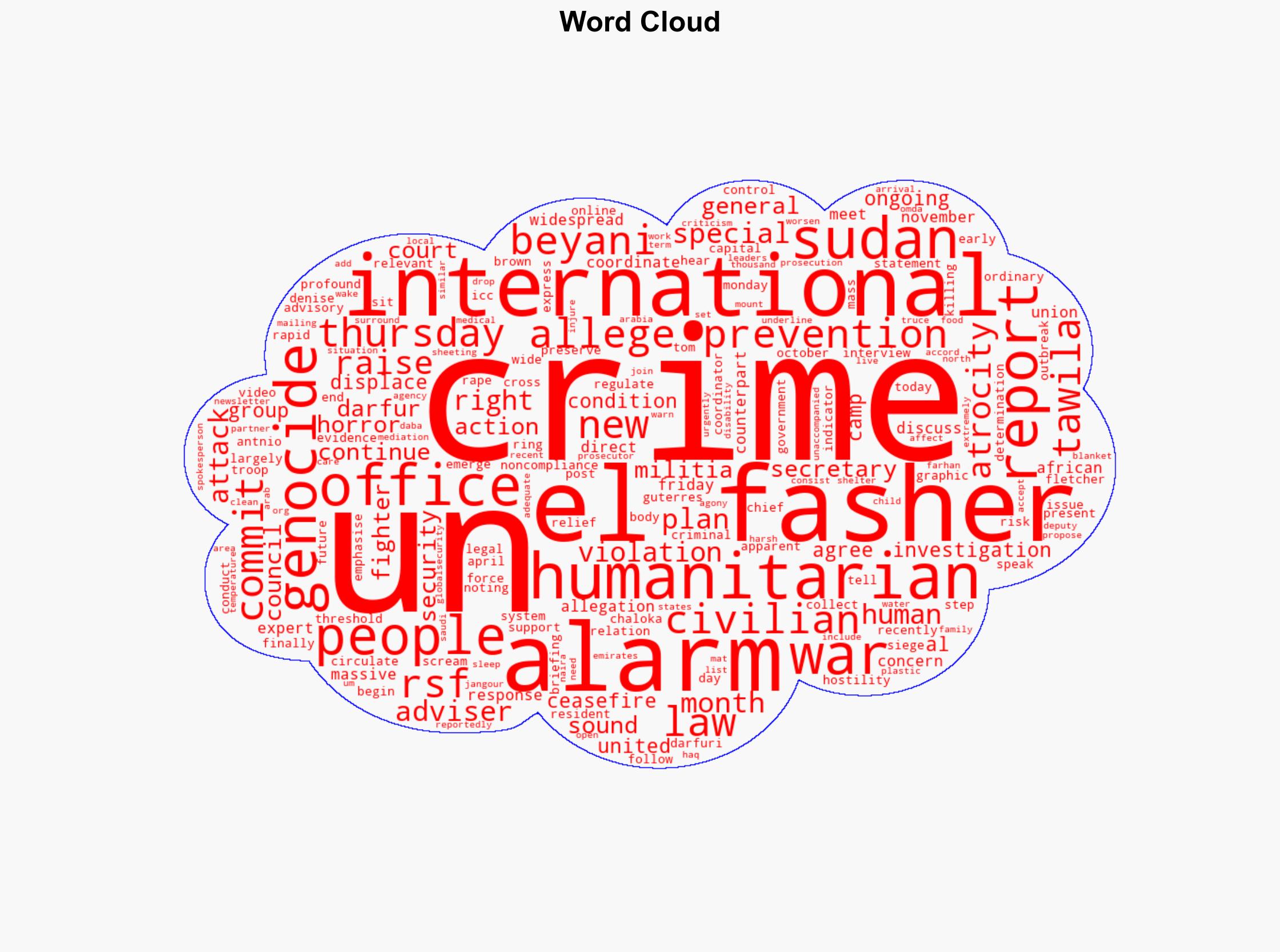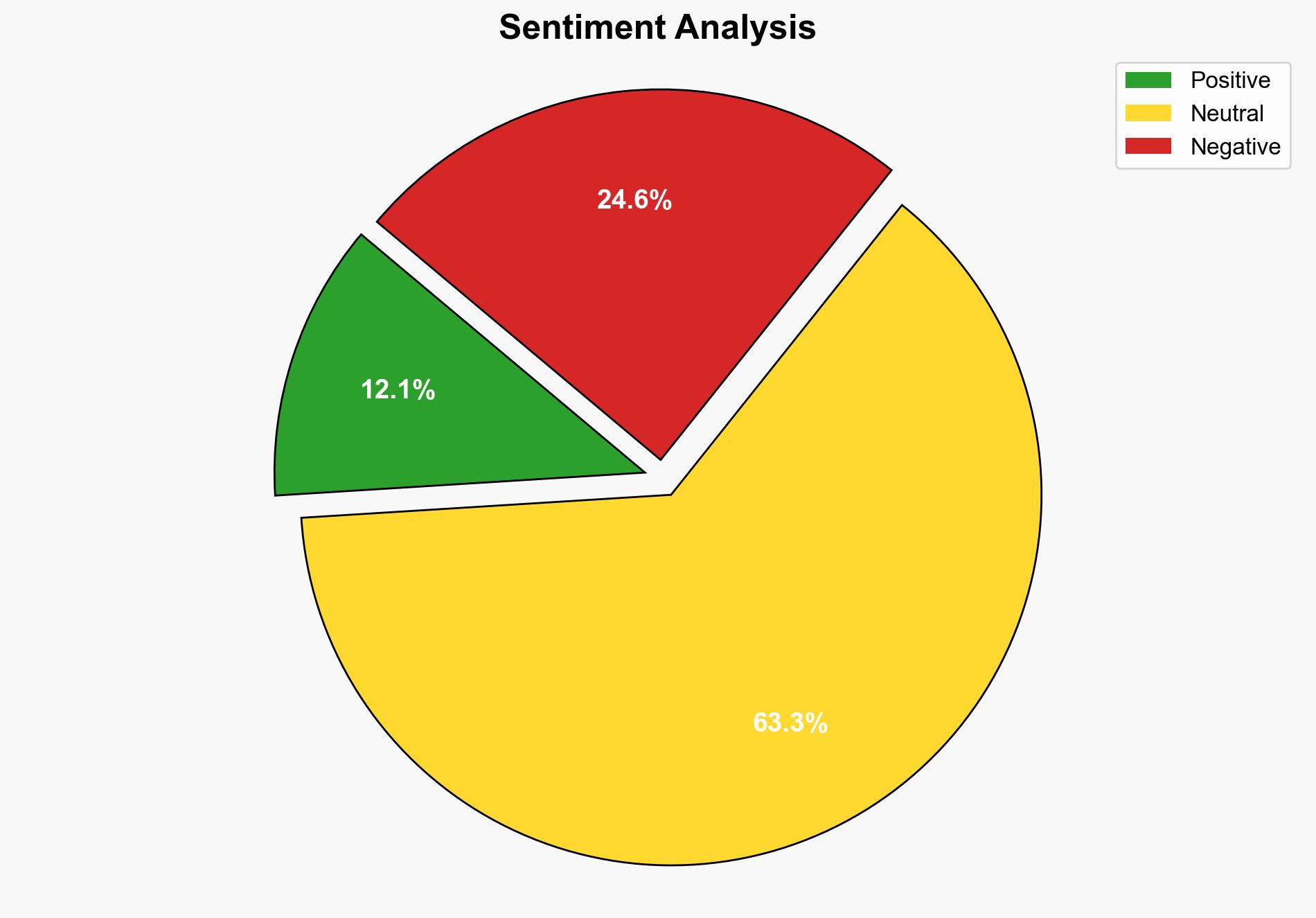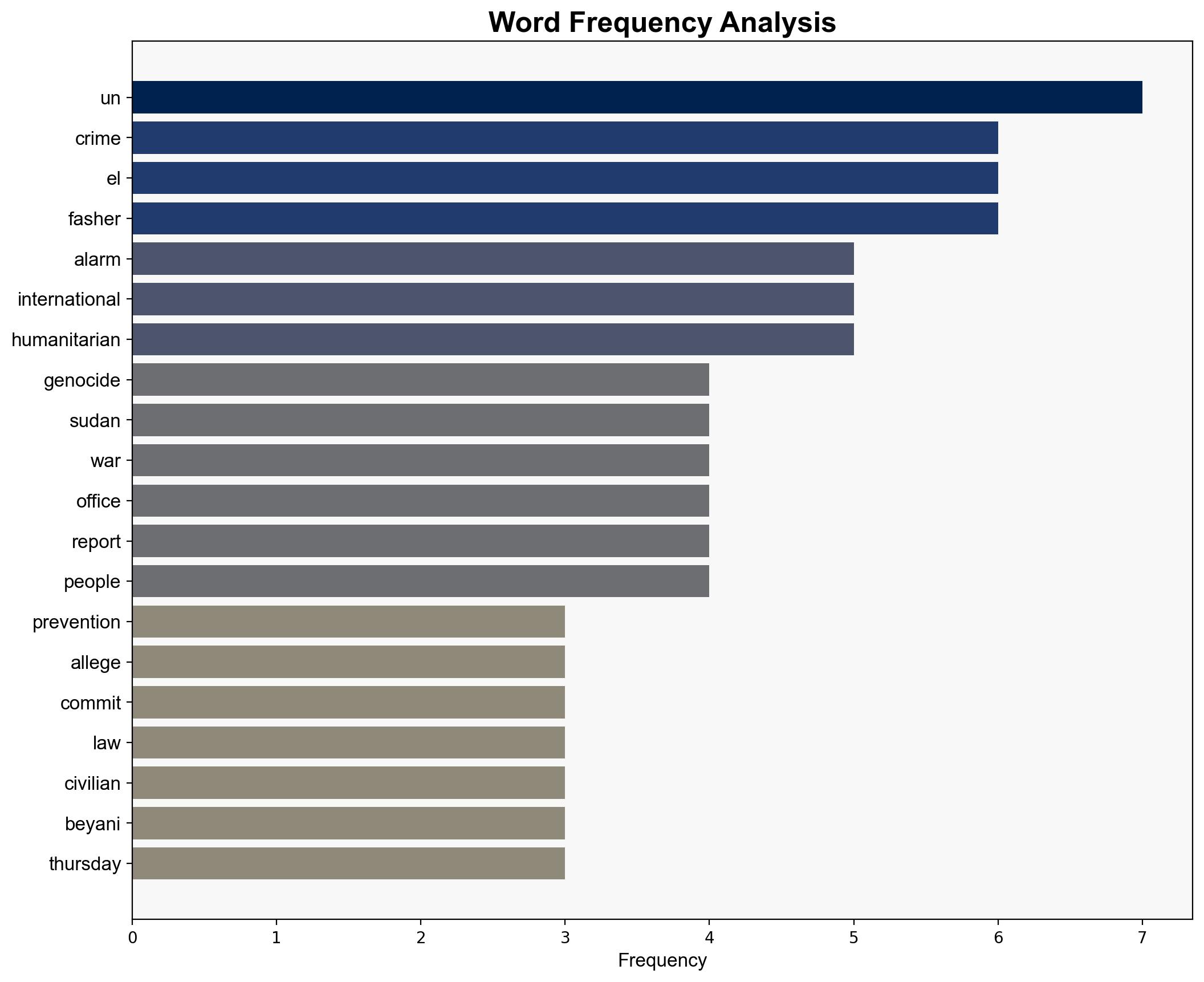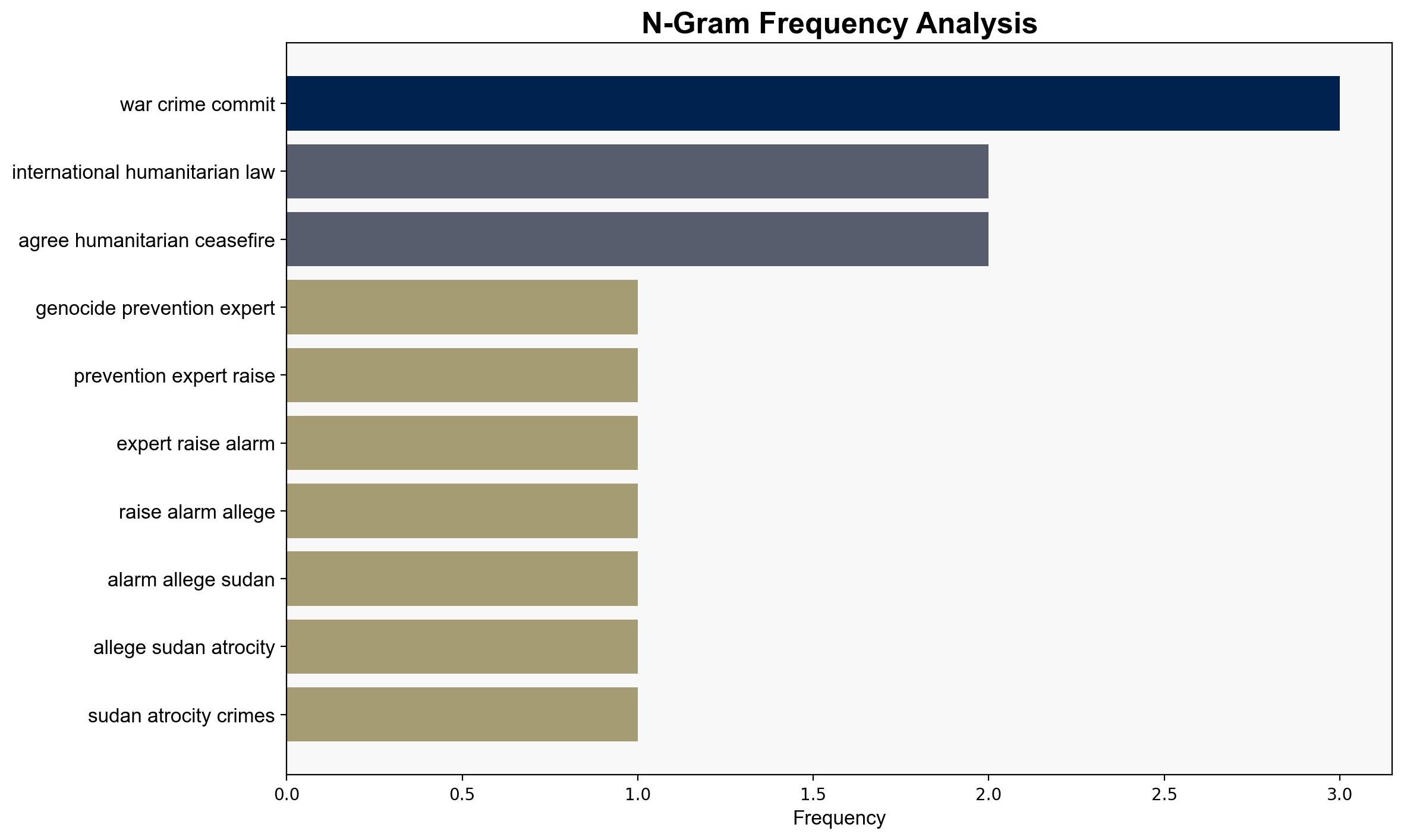Genocide prevention expert raises alarm over alleged Sudan atrocity crimes – Globalsecurity.org
Published on: 2025-11-07
Intelligence Report: Genocide prevention expert raises alarm over alleged Sudan atrocity crimes – Globalsecurity.org
1. BLUF (Bottom Line Up Front)
The most supported hypothesis is that the Rapid Support Forces (RSF) are committing systematic war crimes in Sudan, particularly in El Fasher, with potential genocidal intent. This conclusion is supported by multiple reports of mass killings, rapes, and violations of international humanitarian law. Confidence level: Moderate. Recommended action: Immediate international diplomatic pressure and humanitarian intervention to prevent further atrocities and support ongoing investigations.
2. Competing Hypotheses
1. **Hypothesis A**: The RSF is systematically committing war crimes in Sudan with potential genocidal intent, as evidenced by coordinated attacks on civilians and reports of mass atrocities.
2. **Hypothesis B**: The reports of atrocities are exaggerated or manipulated by opposing factions to gain international sympathy and intervention, with the RSF’s actions being part of a broader conflict with less targeted intent.
Using ACH 2.0, Hypothesis A is better supported due to the consistency of reports from multiple sources, the RSF’s historical behavior, and the international community’s response, including the UN’s alarm and ICC’s involvement. Hypothesis B lacks corroborative evidence and relies heavily on the assumption of misinformation.
3. Key Assumptions and Red Flags
– **Assumptions**: Hypothesis A assumes the credibility of reports and the RSF’s capability and intent to commit such crimes. Hypothesis B assumes significant misinformation and manipulation by opposing factions.
– **Red Flags**: Potential bias in reports due to political motivations. Lack of independent verification of some claims. The RSF’s agreement to a ceasefire could indicate either genuine intent to de-escalate or a tactical maneuver.
4. Implications and Strategic Risks
– **Patterns**: Continued violence could lead to regional instability, increased refugee flows, and humanitarian crises.
– **Cascading Threats**: Potential for international military intervention, sanctions, or increased support for opposition groups.
– **Escalation Scenarios**: If unchecked, the situation could escalate into a broader regional conflict, drawing in neighboring countries and international actors.
5. Recommendations and Outlook
- Immediate diplomatic engagement with key regional players (e.g., Saudi Arabia, UAE) to pressure the RSF into compliance with international norms.
- Support for humanitarian relief efforts to aid displaced populations and mitigate the humanitarian crisis.
- Scenario Projections:
- Best: Successful ceasefire and initiation of peace talks.
- Worst: Escalation into full-scale genocide and regional conflict.
- Most Likely: Continued sporadic violence with international diplomatic efforts to stabilize the situation.
6. Key Individuals and Entities
– Chaloka Beyani
– Denise Brown
– Tom Fletcher
– Antonio Guterres
– Rapid Support Forces (RSF)
7. Thematic Tags
national security threats, human rights violations, regional conflict, humanitarian crisis





